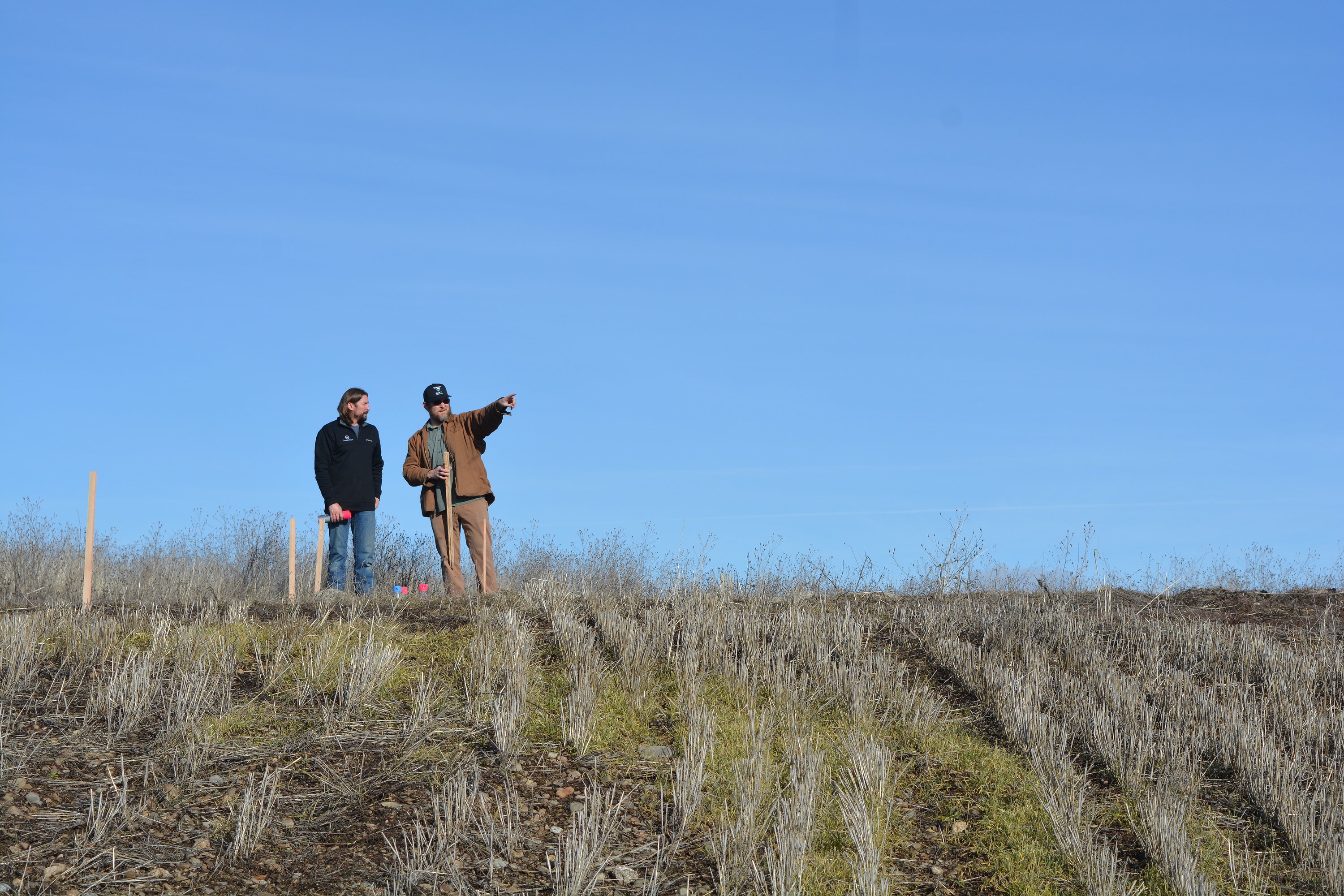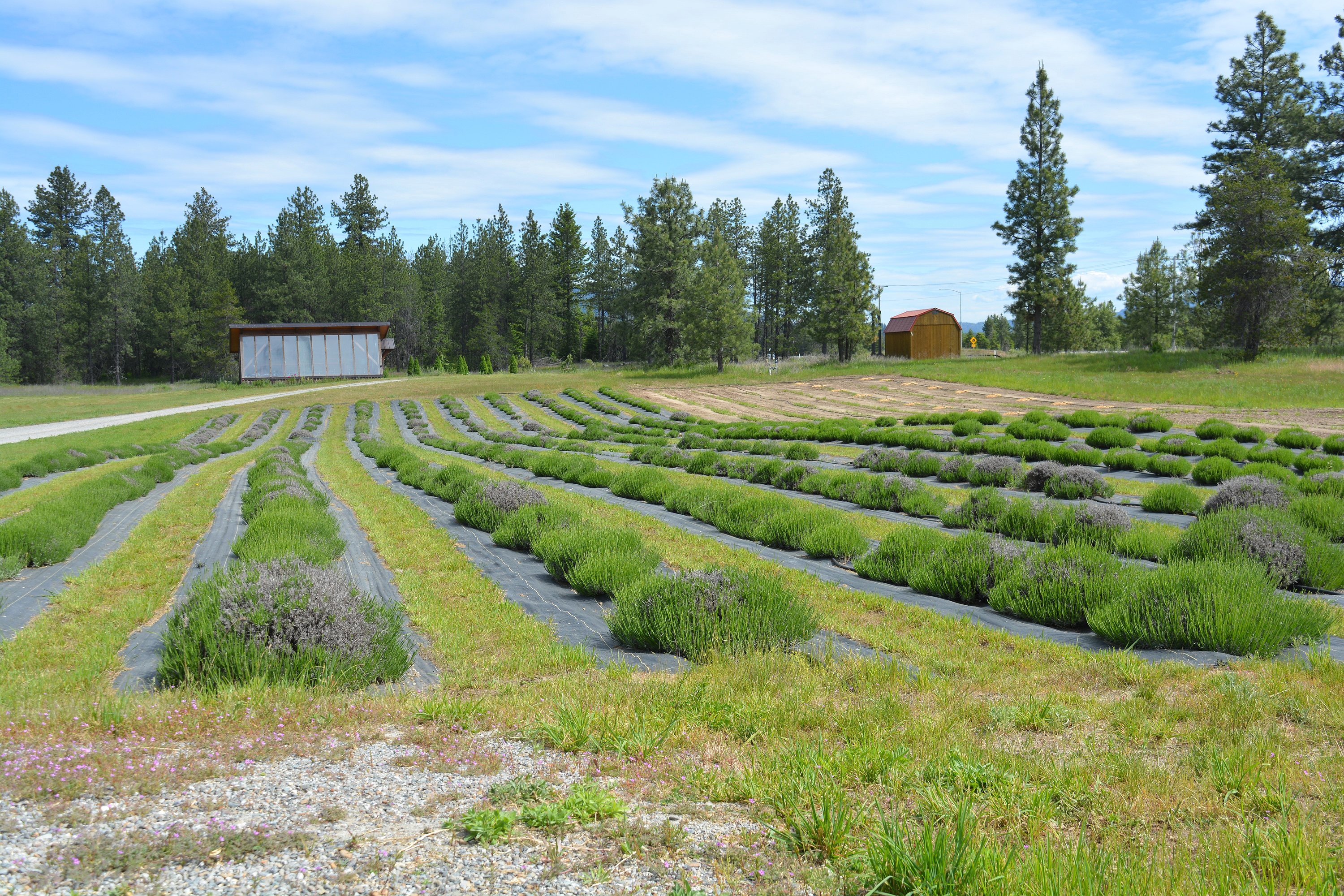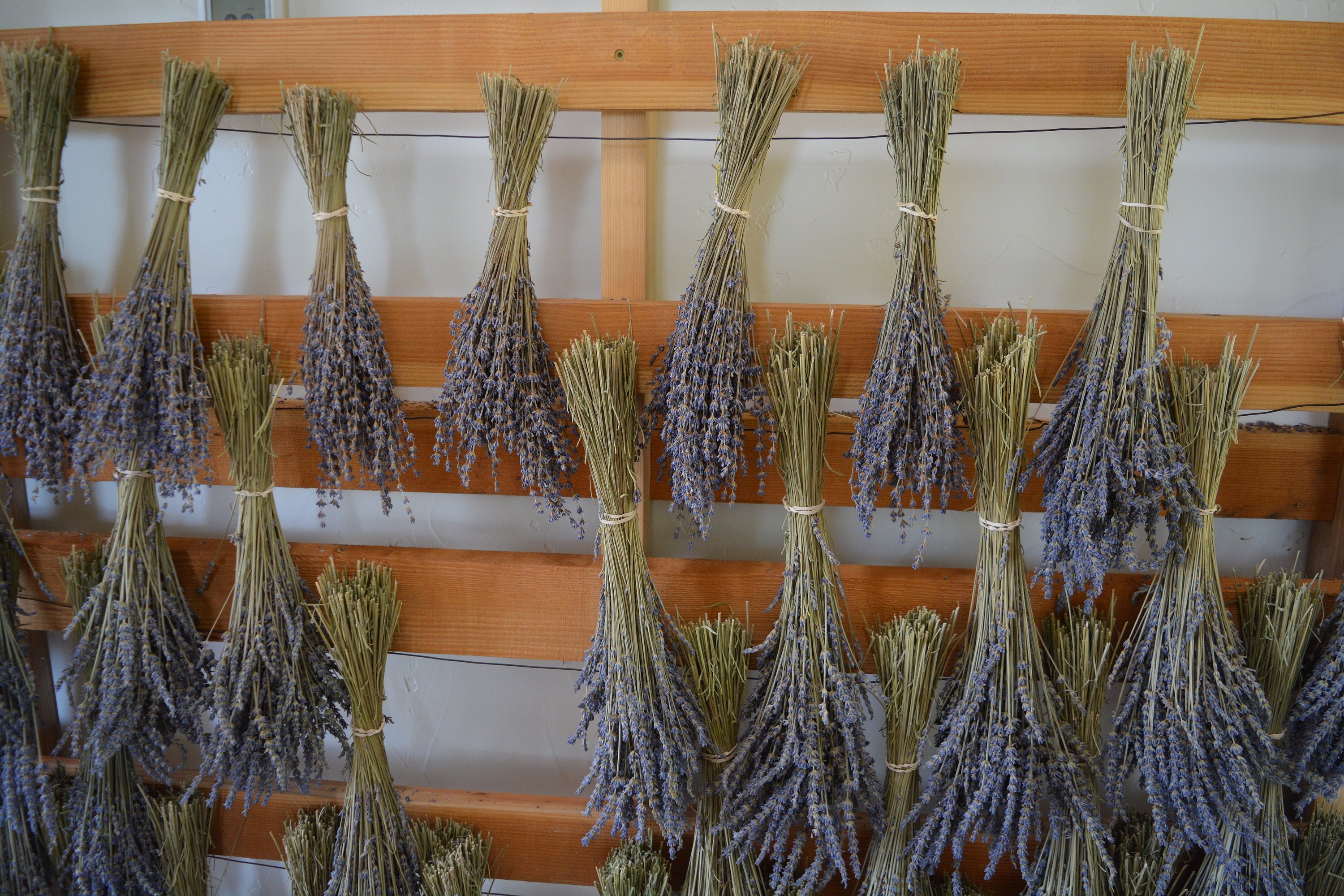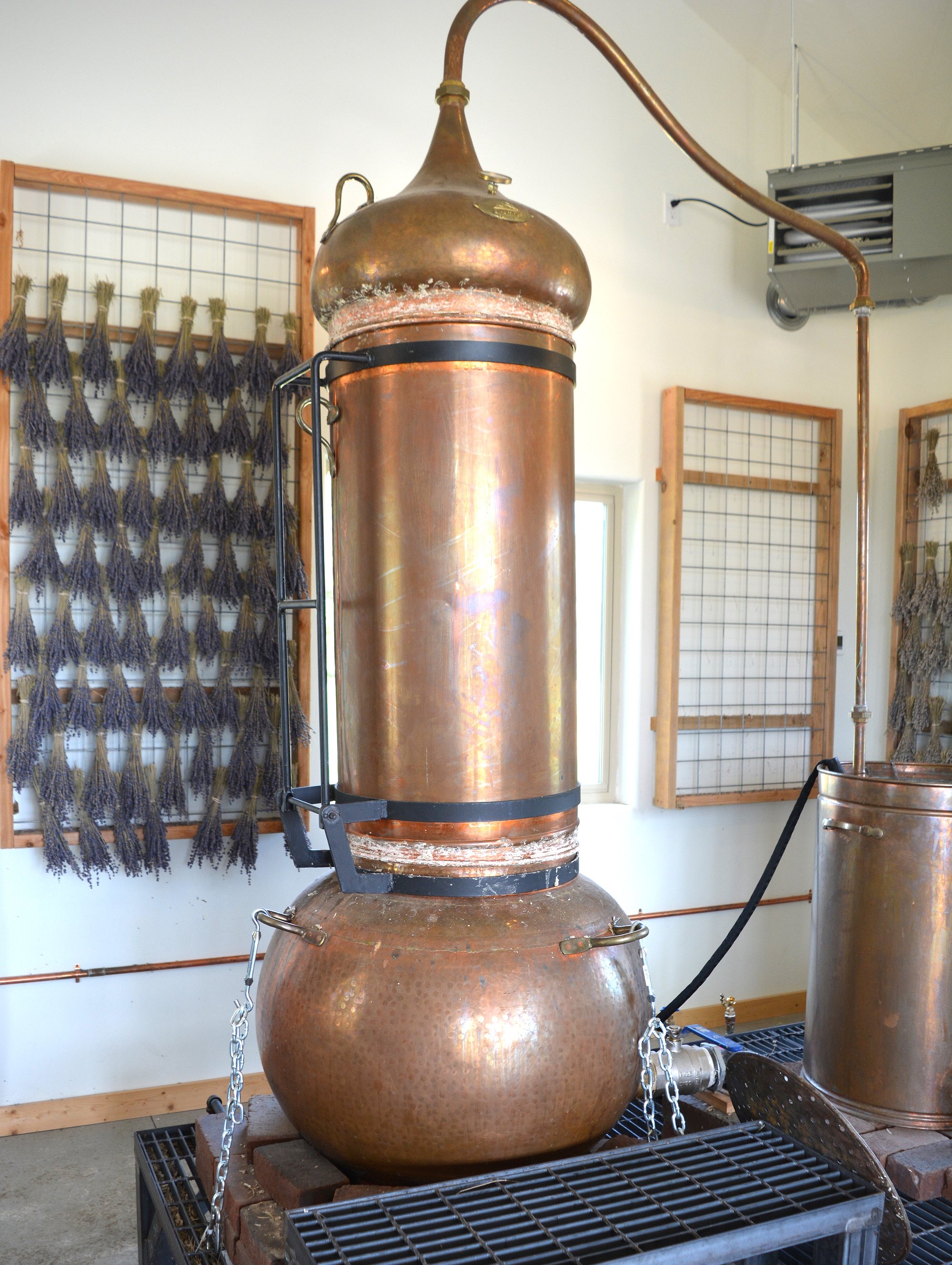Niche farming makes sure fruits of local agriculture grow on the vine

Stacey Aggarwal shows some of the lavender grown at Blooming Fields Lavender Farm in Athol.
Whether you refer to it as small-scale farming or niche farming, Panhandle Farm Corridor coordinator Emily Black said that the farming model has been a way to branch into specific agricultural brackets for farmers without outstripping their means.
The concept differs from specialty crop farming, however, because it excludes beef any meat products, eggs, grain or milk.
Smaller scaling farming ventures like the ones featured in the Panhandle Farm Corridor bring food and farm products to the community without a commercial-sized property.
"They're all so small they are focusing on a niche to differentiate themselves in order to have a business," Black said.
One of the more colorful highlights in the corridor's featured farms is Taking Root Flower Farm, a favorite for Black because of their unique set of colors and changing seasonal crops.
Rather than the standard spooky Halloween fare of pumpkins, Prairie Home Farm holds heirloom pumpkins in their highest regard.
"They're a niche compared to the mass production of jack-o'-lanterns, they're focusing on those heirloom beautiful pumpkins," Black said.
Another favorite and perhaps more pungent niche farm in North Idaho is Snow Valley Garlic.
In September when everything's ready to harvest, Black said the variety of specialty garlics is unlike anything else.
"You can differentiate between them, it's so amazing. Chefs go crazy for them," Black said.
At Blooming Fields Lavender Farm, Stacey Aggarwal moved away from cancer research using her Ph.D. in pharmacology instead bring the myriad of uses lavender presents to brighten people's live by bringing fresh, locally grown lavender into area homes.
"In 2018, we bought it as raw land and always wanted to have a lavender farm. You can do the whole life cycle of it all in one place," Aggarwal said. "We grow it, dry it, distill it ourselves."
Combining Nathan Aggarwal's expertise as an engineer and Stacey Aggarwal's science background, the couple's favorite part of farming thus far has been sharing the process with customers who get to see the plants growing.
"It keeps the farming fun," Stacey said.
The peak season is July into August for lavender on the farm.
"Life gets pretty crazy here. That whole month is kind of just a whirlwind," Stacey said.
They grow 12 varieties of lavender, mainly English and one French species and all for different uses. Blooming Fields also hosts a u-pick lavender agrotourism experience.
Of those varieties, some are dried some for food and some are turned into oils through the hydrosol distillation process.
Wine on the vine?
Grape vines for a new vineyard are part of a new niche farming venture for Keelan and Cara Dickson and Jim Beck.
The test vineyard on the Beck land in Post Falls is tilling prairie soil to start a new agricultural chapter where once only alfalfa grew.
Keelan said he isn't afraid to try new ventures even though farming was new to him.
With grape vines from Yakima Valle, the Dicksons and Beck are hoping that of some of the five varietals they're planting on the southern-facing slopes, enough prove fruitful to ignite the launch of the wine-making venture.
If the vines are a fit for the area, the test vineyard could produce between 3 to 5 tons of grapes.
With the power of the Dicksons and the Beck, two multi-generational agricultural families from Post Falls united, the niche farming project has been one a hopeful one.
 Keelan Dickson and Jim Beck discuss laying out a vineyard on Beck's property. Dickson and his wife, Cara Dickson are owners of Rosemary Manor.
Keelan Dickson and Jim Beck discuss laying out a vineyard on Beck's property. Dickson and his wife, Cara Dickson are owners of Rosemary Manor.












